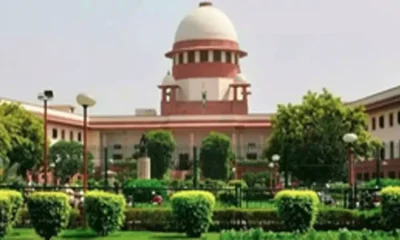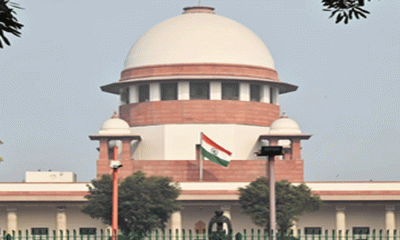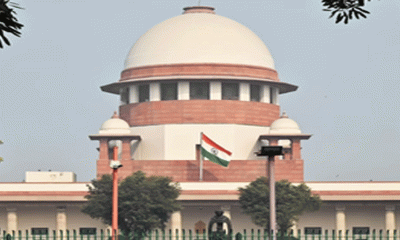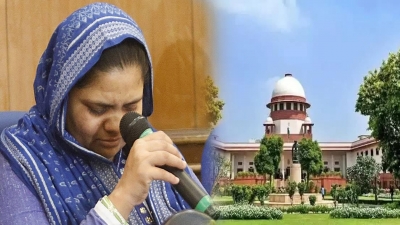Politics
Places of Worship Act put to test as Gyanvapi mosque case goes to Supreme Court

The three-page legislation — The Places of Worship Act, 1991 — is at the centre of the row over videographic survey carried out at the Gyanvapi mosque in Varanasi, where a Shivling was purportedly discovered.
The law has been invoked by the Committee of Management, Anjuman Intezamia Masajid Varanasi, which manages the Gyanvapi mosque, before the Supreme Court, saying mischievous attempts were being made to change the character of the mosque, which existed for 500 years.
In the Ayodhya judgment, the Supreme Court had said that the Act is intrinsically related to the obligations of a secular state and it reflects the commitment of India to equality of all religions.
However, in the Gyanvapi mosque matter, the Act will be put to legal scrutiny and face a test, in view of the ethos of secularism.
A bench comprising Justices D.Y. Chandrachud, Surya Kant, and P.S. Narasimha observed that the survey of a structure to ascertain its religious nature is not barred under the Act.
The committee moved the top court under Order 7, Rule 11 of the Civil Procedure Code against the maintainability of the suit, filed by five Hindu women seeking enforcement of their right to worship Goddess Shringar Gauri and other deities inside the mosque.
The masjid committee has also questioned the appointment of a commissioner for the video survey of the mosque, as it was barred under the Places of Worship (Special Provisions) Act, 1991, and pointed at the fallout of entertaining a suit in gross violation of the provisions of the 1991 Act.
The counsel representing the masjid committee argued in the apex court that similar mischief is being attempted in connection with four-five other mosques and objected to the trial court order to protect an area which had been used for the last 500 years by Muslims as ‘wuzu khana’ (ablution pond).
The Places of Worship Act, 1991 had its own share of controversies. The then Union Home Minister, S.B. Chavan, while moving the Bill in the Lok Sabha had said that it is a measure to provide and develop our glorious traditions of love, peace and harmony.
However, the BJP, then main Opposition party, had opposed the Bill tooth and nail, and termed it as another attempt by the Congress government to appease the minorities.
The Central government notified the Act to forestall fresh claims by any community about the previous designation of any religious place of worship and also subsequent attempts to regain land, on which they stood.
The Places of Worship Act, 1991 begins by saying, “An Act to prohibit conversion of any place of worship and to provide for the maintenance of the religious character of any place of worship as it existed on the 15th day of August, 1947, and for matters connected therewith or incidental thereto.”
Section 4 of the Act says, “It is hereby declared that the religious character of a place of worship existing on the 15th day of August, 1947 shall continue to be the same as it existed on that day.”
The Section 4(2) of the Act says any suit, appeal or other proceeding with respect to the conversion of the religious character of any place of worship, existing on August 15, 1947, is pending before any court, tribunal or other authority, the same should abate, and no fresh suit or legal proceedings would be instituted.
And, the proviso to this section clarifies that only those litigations are allowed, where conversion has taken place in the religious character after August 15, 1947. The offence under the Act is punishable with imprisonment for a term which may extend to three years and also a monetary penalty.
According to the Act, if a person attempts to convert any place of worship, or is part of a conspiracy, she/he can face a jail term.
The Act has put the Ram Janmabhoomi-Babri Masjid dispute outside its domain of operation. However, the Supreme Court in its Ayodhya judgment cited its importance. In November 2019, the Supreme Court ruled in favour of the Hindu side paving the way for the construction of Ram temple in Ayodhya.
The apex court had then said The Places of Worship Act is intrinsically related to the obligations of a secular state and it reflects the commitment of India to the equality of all religions.
“Above all, The Places of Worship Act is an affirmation of the solemn duty which was cast upon the state to preserve and protect the equality of all faiths as an essential constitutional value, a norm which has the status of being a basic feature of the Constitution. There is a purpose underlying the enactment of The Places of Worship Act. The law speaks to our history and to the future of the nation,” the top court had said.
The five-judge bench had said: “Historical wrongs cannot be remedied by the people taking the law in their own hands. In preserving the character of places of public worship, the Parliament has mandated in no uncertain terms that history and its wrongs shall not be used as instruments to oppress the present and the future.”
The apex court had said The Places of Worship Act imposes a non-derogable obligation towards enforcing “our commitment to secularism under the Indian Constitution and the law is hence a legislative instrument designed to protect the secular features of the Indian polity, which is one of the basic features of the Constitution”.
“Non-retrogression is a foundational feature of the fundamental constitutional principles of which secularism is a core component. The Places of Worship Act is thus a legislative intervention which preserves non-retrogression as an essential feature of our secular values,” it had said.
On May 20, 2022, the top court noted that ascertaining the religious character of a place of worship through a procedure known to the law, will not fall foul of The Places of Worship Act, 1991. The top court has shifted the trial of the suit by the Hindu parties from civil judge, senior division, to the district judge.
The top court said its May 17 interim order — protecting the ‘Shivling’, purportedly discovered during the survey, and free access to Muslims for ‘namaz’ — will remain operational for eight weeks, after the district judge’s decision in the matter, so as to allow the aggrieved parties to appeal against the decision.
The Supreme Court has scheduled the Gyanvapi case for hearing in July.
Bollywood
Bombay HC Reserves Order On Sunil Shetty’s Plea Seeking Protection Of Personality Rights
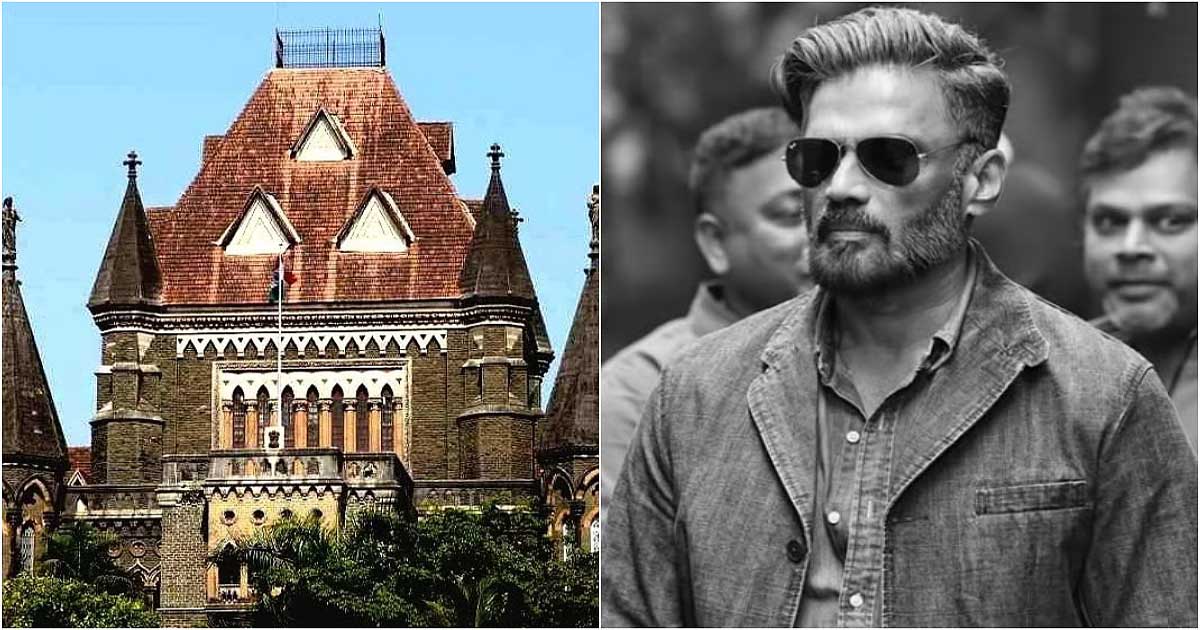
Mumbai: The Bombay High Court on Friday reserved its order on a plea filed by Bollywood actor Sunil Shetty seeking protection of his personality rights and an injunction against unauthorised use of his name, image, and likeness on social media and various websites.
A single-judge bench of Justice Arif S Doctor briefly heard arguments from senior advocate Birendra Saraf, representing the 64-year-old actor, and remarked that “it is scary what people can do with the unregulated use of AI on social media.” The court is expected to pass an ex parte ad-interim order in due course.
Shetty, who has acted in over 100 films, has filed a commercial intellectual property rights infringement suit against several social media platforms, websites, and unknown persons (John Doe defendants) for what he described as “extensive and ongoing infringement and unauthorised commercial exploitation” of his persona.
The plea highlights that his photographs and deepfake images, including those with his grandchild, were being used for commercial gain by real estate agencies, gambling and astrology websites, and merchandise sellers — all without his consent or authorisation.
Some of these instances involve AI-generated content, including deepfake videos and counterfeit merchandise like T-shirts and posters featuring his image.
Saraf submitted that such unauthorised usage and impersonation dilute the actor’s reputation, goodwill, and contractual commitments with third parties. “The infringement acts are causing irreparable harm to the plaintiff’s immense goodwill built carefully over the years,” the plea stated.
It further argued that the business models of such websites were designed to unlawfully monetise Shetty’s persona and “debase the goodwill and reputation that the plaintiff has cultivated over many years.”
The actor has sought a permanent injunction restraining all defendants from misusing his personality rights — including his name, image, likeness, voice, or any other attributes — in any form, especially through AI-generated or deepfake content.
He has also sought directions to take down infringing content and prohibit the manufacture or sale of counterfeit merchandise using his likeness.
Justice Doctor had earlier, while granting interim relief to singer Asha Bhosle in a similar plea, observed that using AI tools to imitate a celebrity’s voice without consent violates their personal rights.
National News
ACC Locks Asia Cup Trophy With Instructions Of Not Be Handed To Team India Without Mohsin Naqvi’s Presence
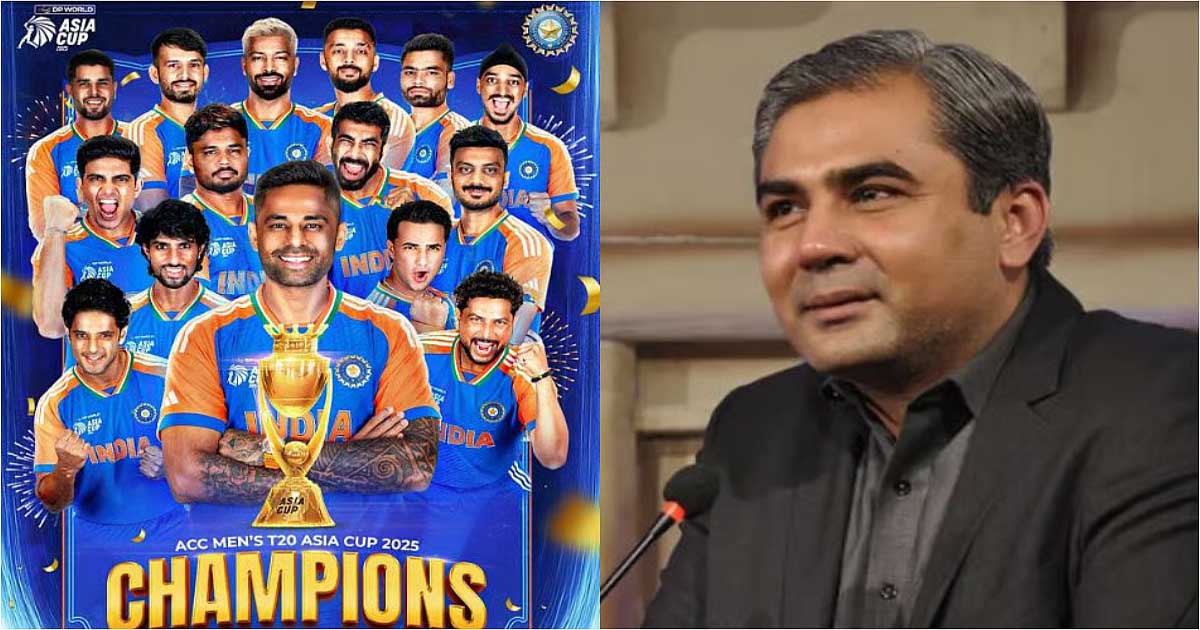
Lahore: The Asia Cup trophy, which was not presented to the victorious Indian team after its refusal to accept it from Asian Cricket Council chief Mohsin Naqvi, has been locked away at the ACC’s Dubai headquarters with “instructions that it should not be moved or handed over” without the Chairman’s approval.
The trophy has been at the ACC office after Naqvi walked away with it from the presentation ceremony following the Indian team’s refusal to accept it from him. India beat Pakistan in the Asia Cup final in Dubai on September 28.
Naqvi is also the Pakistan Cricket Board (PCB) Chairman and the Interior Minister of his country and India-Pakistan tensions have hit a peak after the Pahalgam terror attack.
“As of today the trophy is still in ACC offices in Dubai with clear intructions from Naqvi that it should not be moved or handed over to anyone without his approval and in person presence,” a source close to Naqvi told PTI.
“Naqvi has given clear instructions that only he will hand over the trophy in person (whenever that happens) to the Indian team or BCCI,” he added.
The entire Asia Cup was overshadowed by Indo-Pak hostilities. The Indians refused to shake hands with the arch foes throughout the tournament and players from both sides mocked each other with politically charged gestures.
Naqvi too made political statements on his social media pages.
The BCCI took strong exception to his act of walking away with the trophy and vowed to raise the matter in an ICC meeting next month. It is being widely speculated that a strong move to get Naqvi censured and even removed as Director in the ICC could be made.
“It remains to be seen what will be the long term ramifications for the PCB or Naqvi because the BCCI is clear he (Naqvi) didn’t have any right to insist on handing the trophy himself to the Indian team and refusing to send it to the BCCI who were official hosts of the event,” the source said.
National News
Nine Maharashtra Districts Included In PM Dhan Dhanya Krishi Yojana To Boost Farmer Income And Self-Reliance
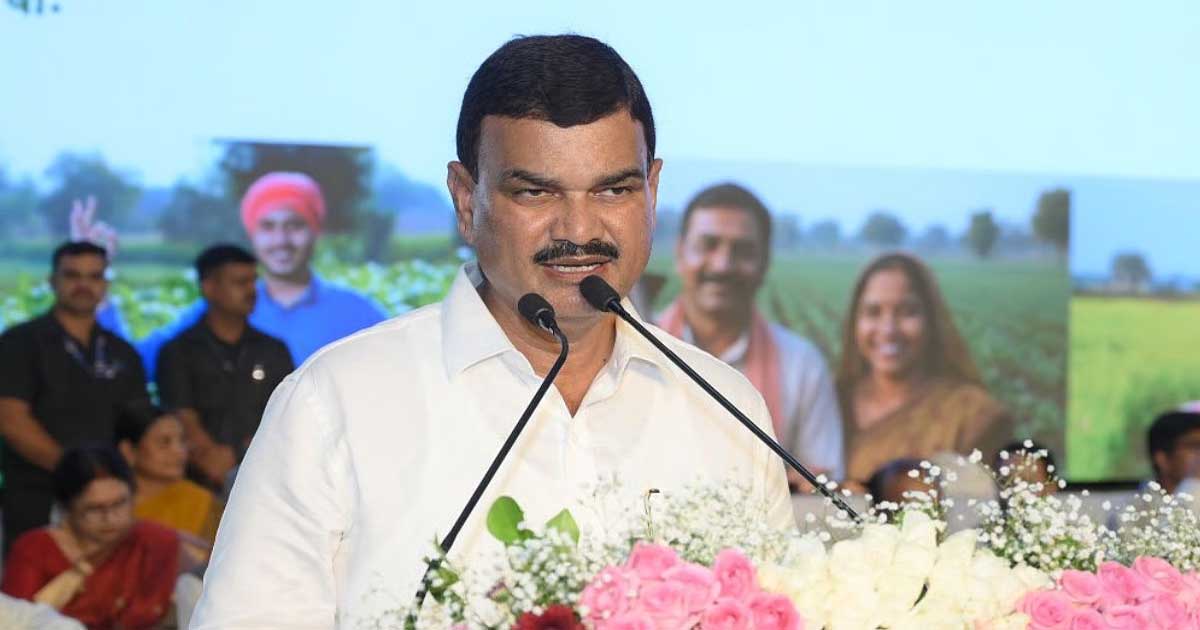
Mumbai: “The Prime Minister Dhan Dhanya Krishi Yojana marks a decisive step towards increasing farmers’ income and making them self-reliant,” said Maharashtra Agriculture Minister Dattatray Bharane. “After consistent efforts for farmers’ justice, this is a significant achievement. The Central Government has included nine districts from Maharashtra in the scheme, which will be inaugurated tomorrow in Delhi by Prime Minister Narendra Modi. I urge farmers across the state to actively participate in this initiative,” Bharane added.
A state-level event for Maharashtra will be held tomorrow under the chairmanship of Agriculture Minister Dattatray Bharane at the Pune District Central Cooperative Bank Auditorium.
The Prime Minister Dhan Dhanya Krishi Yojana (PMDDKY) has been launched by the Central Government to improve the condition of farmers in regions with low productivity, limited irrigation facilities, and inadequate access to agricultural credit. A total of 100 districts across India have been selected under the scheme, including nine from Maharashtra—Palghar, Raigad, Dhule, Chhatrapati Sambhajinagar, Beed, Nanded, Yavatmal, Chandrapur, and Gadchiroli.
The scheme aims to promote agricultural improvement, crop diversification, productivity enhancement, and sustainable farming. It will be implemented over the next six years, with an annual budgetary provision of ₹24,000 crore. In the selected districts of Maharashtra, the focus will be on grain storage, processing, irrigation improvement, and local employment generation.
Minister Bharane welcomed the decision, saying, “This scheme will directly benefit farmers across the state. It will strengthen sustainable agriculture, water conservation, and the adoption of modern technologies—boosting farmers’ confidence. This initiative truly means ‘strength to farming, relief to farmers’.”
More than 300 progressive and innovative farmers are expected to attend tomorrow’s event. Under this program, 36 different schemes from 11 departments of the Central and State Governments will be implemented in convergence. The activities will be executed at multiple levels—Gram Panchayats, Krishi Vigyan Kendras (KVKs), Agricultural Market Committees, Kisan Samriddhi Kendras, and Cooperative Credit Societies (PACS).
Currently, over 36 central and state agricultural schemes are being converged to boost crop productivity, ensure sustainability, and strengthen post-harvest technology and credit systems. The nationwide launch of the PM Dhan Dhanya Krishi Yojana, Natural Farming, and Pulses Campaign will be conducted through live broadcasts at district headquarters, KVKs, taluka offices, Gram Panchayats, and agricultural institutions.
Representatives from local bodies, agriculture departments, universities, scientists, award-winning farmers, natural farming practitioners, and farmer producer companies will participate in these events.
Minister Bharane also extended his gratitude to Prime Minister Narendra Modi and Union Agriculture Minister Shivraj Singh Chouhan for including nine districts from Maharashtra under this ambitious and farmer-friendly initiative.
-

 Crime3 years ago
Crime3 years agoClass 10 student jumps to death in Jaipur
-

 Maharashtra1 year ago
Maharashtra1 year agoMumbai Local Train Update: Central Railway’s New Timetable Comes Into Effect; Check Full List Of Revised Timings & Stations
-

 Maharashtra12 months ago
Maharashtra12 months agoMumbai To Go Toll-Free Tonight! Maharashtra Govt Announces Complete Toll Waiver For Light Motor Vehicles At All 5 Entry Points Of City
-

 Maharashtra1 year ago
Maharashtra1 year agoFalse photo of Imtiaz Jaleel’s rally, exposing the fooling conspiracy
-

 National News12 months ago
National News12 months agoMinistry of Railways rolls out Special Drive 4.0 with focus on digitisation, cleanliness, inclusiveness and grievance redressal
-

 Maharashtra11 months ago
Maharashtra11 months agoMaharashtra Elections 2024: Mumbai Metro & BEST Services Extended Till Midnight On Voting Day
-

 National News1 year ago
National News1 year agoJ&K: 4 Jawans Killed, 28 Injured After Bus Carrying BSF Personnel For Poll Duty Falls Into Gorge In Budgam; Terrifying Visuals Surface
-

 Crime12 months ago
Crime12 months agoBaba Siddique Murder: Mumbai Police Unable To Get Lawrence Bishnoi Custody Due To Home Ministry Order, Says Report



